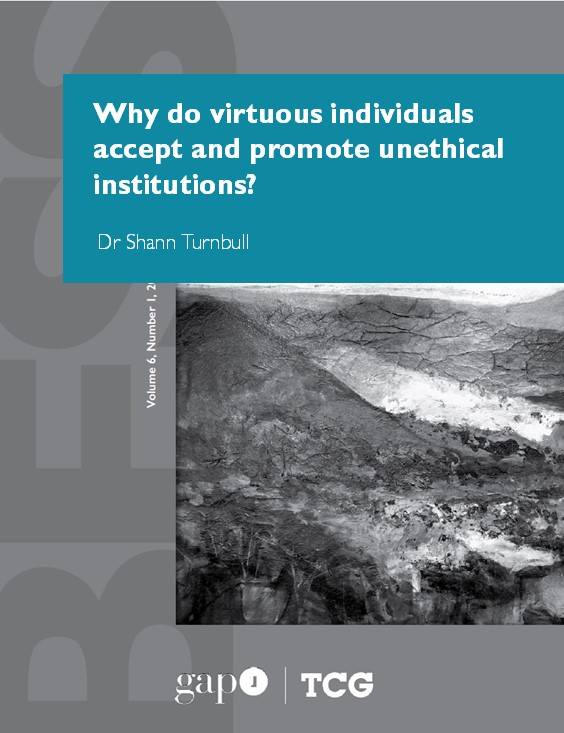Why do virtuous individuals accept and promote unethical institutions?
DOI:
https://doi.org/10.54337/ojs.bess.v6i1.8719Nyckelord:
Distributed decision-making, ethical blindness, groupthink, intellectual colonisation, self-governanceAbstract
This article defines ethical blindness when considering why otherwise virtuous individuals accept unethical institutional practices. It occurs when individuals possessing organisational power over others promote their self-interests to inhibit or deny promoting the common good. Systems science provides a solution for ethical blindness. It explains why living things possess distributed decision-making to maintain a self-governing existence. Checks and balances are introduced to avoid dysfunctional "group think" or intellectual colonisation. Several Australian case studies are presented. A solution that also improves the wellbeing of all citizens by reducing inequality creates a compelling incentive for politicians to act.

##submission.downloads##
Publicerad
Nummer
Sektion
Licens
Copyright (c) 2024 Dr Shann Turnbull

Detta verk är licensierat under en Creative Commons Erkännande-IckeKommersiell-IngaBearbetningar 3.0 Internationell licens.
This journal provides immediate open access to its content on the principle that making research freely available to the public supports a greater global exchange of knowledge.
Articles published in BESS follow the license Creative Commons Attribution-NonCommercial-NoDerivs 3.0 Unported (CC BY-NC-ND 3.0)
Authors retain copyright and grant the journal right of first publication with the work simultaneously licensed under a Creative Commons Attribution License: Attribution - NonCommercial - NoDerivs (by-nc-nd).
Further information about Creative Commons




